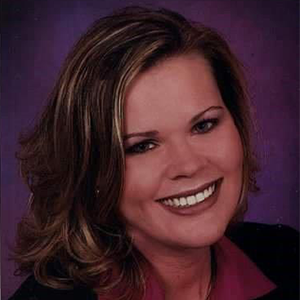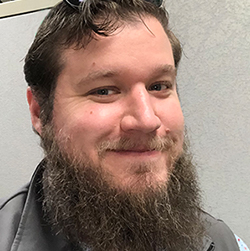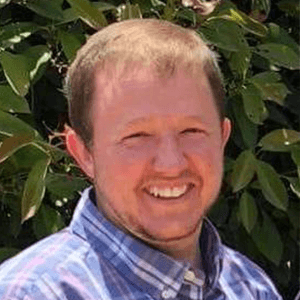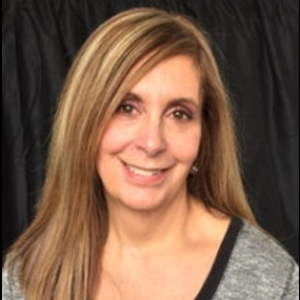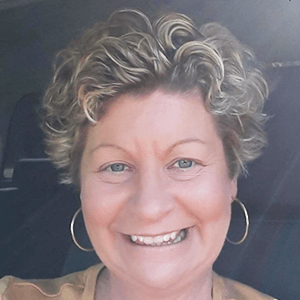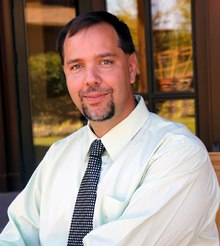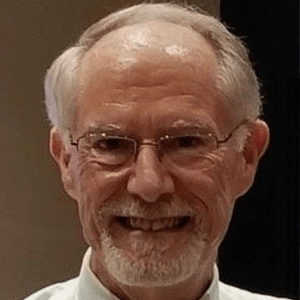With Sam Glenn, attitude changes everything. At one time, Sam Glenn was barely getting by working odd jobs at night. He was negative, depressed and sleeping in his car or on borrowed floor space. It was a series of positive events from knocking over the legendary Zig Ziglar at a buffet to simple cups of coffee with good friends that gave Sam what he calls a KICK IN THE ATTITUDE to turn his life around. Sam changed his negative outlook and began working on developing a more positive attitude. As Sam’s attitude changed, everything changed. He discovered renewed purpose, happiness and humor. For the past 20 years, Sam has become regarded as one of the most fun, entertaining and inspirational conference speakers. In addition, Sam is gifted artist and author of 23 books that focus on personal and professional development.
Creating Community Connections Conference
Please join us for the Creating Community Connections Conference on October 29-30, 2019, at the Crowne Plaza Hotel, in Louisville, KY! This event is two full days of training created for Kentucky’s behavioral health Targeted Case Managers, Peer Support Specialists and Community Support Associates. Each day starts with a morning plenary and is followed by a variety of workshops from which to choose.
Participants will make their workshop selections on site but must register for the conference, online, at the link below under "Online Registration" or click here. There will be NO on-site registration and total participant numbers are limited so please do not delay in registering for this event. All offering are approved for continuing education hours for these three professional types but there are no KY Licensure Board CEUs for this event. You may register for one day or two but there are no half day registration opportunities. The registration fee is $150.00 per day and this includes a wonderful buffet lunch. Each participant will receive a certificate of attendance upon completion of an overall evaluation post event.
There will be an exhibit hall to visit Tuesday and Wednesday, from 8:00am-5:00pm to give participants an additional opportunity to learn about new products and to network with professional organizations from across the state. Stay tuned to this web site and sign up for our list serve to stay “in the know” about the CCC conference 2019!
We are also excited to offer a special opportunity for anyone who may have questions or need assistance with their DBHDID TRIS account? Please visit the DBHDID TRIS Information Center to be set up at the conference. The DBHDID TRIS Information Center can assist with:
- Questions about your account
- Help with getting your account set up
- Ensure your account is currently meeting regulation compliance
- Assist DBHDID Training Providers
The center will be open one hour prior to the start of the conference, during the 10:00-10:30am break, during the 12-1:30p lunch break, and open Monday and Tuesday from 5p-6:30pm.
Two Day Event
2 full days of workshop sessions with daily opening Plenaries.
Networking
An opportunity to make connections with other professionals in the field.
25+ Workshops
Covering a variety of topics and trainings specifically related to Case Management, Peer Support Services and Comprehensive Community Support.
Completion Certificates
Will be provided for all attendees.
Conference Schedule
Psychotropic Medications 101: What you Need to Know
This session is a repeat of the session offered on Wednesday morning. This workshop will focus on the common mental health illnesses seen in adults and children including Depression, Bipolar, Schizophrenia, Anxiety Disorders, PTSD and Attention Deficient Disorder. Their symptoms and treatment will be discussed along with an emphasis on the classes of psychotropic medications used in their treatment and possible side effects or drug interactions.
Trauma Informed Care: An Overview
This is an introductory level training aimed at educating participants about the continuum of Trauma-Informed Care and the pervasiveness of trauma in our communities. Participants will learn about types of trauma, its pervasiveness, and long-term outcomes from the effects of trauma, particularly as it relates to individuals receiving behavioral health services.
IPS Supported Employment: A Label Does Not Define Me Or Who I Am Meant To Be!
This presentation will include an overview of the Individual Placement and Support (IPS) model for Supported Employment. IPS is an evidence-based practice that helps people with behavioral health conditions work at jobs of their choosing. Participants will learn about the role of work in a person’s recovery as well as the eight core principles that guide the model. This session will include information on what is happening with IPS in Kentucky as well as hearing a testimonial from a client’s whom returned to work.
Ethical Dilemmas in the Digital Age
Social networking sites, text messages, Google, email and the Internet: these digital media have become ubiquitous in the everyday life of addiction professionals and the people they serve. Incorporating digital media into Professional Ethics were not covered when the majority of addiction professionals were in graduate school, and they open up multiple issues with respect to self-disclosure and professional boundaries. This didactic and experiential training will allow participants to gain an increased understanding of the dynamics of these various digital media and how to safely navigate them in a professional and personal setting.
ADA Compliance and What You Need to Know
Do you work with individuals covered under the Americans with Disabilities Act (ADA)? If so, do you understand it? Or how to explain the rights it provides to the individuals on your caseload? During this session we will provide an overview of the law. Specific examples will be provided of how ADA can be used to advocate for access and stories of where denied access affected individuals' lives. You will leave with resources to help better understand the ADA and identify community partners who provide accommodations or can help you advocate
What is CIT? (Crisis Intervention Team)
This session will provide an overview of the history and current implementation of CIT in KY. This will include a discussion of the CIT Boards developed across KY. Anyone working with individuals with mental health or substance use disorders should know about CIT and this is your chance.
Person Centered Recovery Planning: A Behavioral Health Overview
This workshop will provide an overview of the concept of Person Centered Recovery Planning as a process and will promote a greater understanding of using person first language and actions. The contrast between the traditional “medical model” and a person centered model of care will be explored.
If Addiction is not Willful Bad Behavior, then What is it?
Science is clear: addiction is a chronic medical condition. Most social services providers, however, treat it like bad behavior that enough punishment will correct. By comparing addiction to other chronic medical conditions, participants will explore more effective ways of working with people with substance use disorders to achieve better outcomes.
Motivational Interviewing (MI) & Open Ended Questions
This session will explore the method of Motivational Interviewing and discuss how to incorporate these skills into your daily work. MI can be an extraordinary tool for practitioners as we enhance our ability to listen and communicate with those we serve while allowing them the opportunity to make their own decisions. This presentation is based on the definition used by Miller and Rollnick (2013): “Motivational interviewing is a style of communication that involves strategic use of questions and statements to help clients find their own reasons for change.” It is an “evidence based, person-centered method for addressing the common problem of ambivalence about change.” This session will offer the following: Brief history of Motivational Interviewing; Basic and fundamental principles of MI; MI skill building; and Interactive experiences to illustrate the facilitation of MI.
Substance Use Disorders 101
This session will provide an overview of Substance Use Disorders and the treatment modalities available to address them. It is intended for those who may be more experienced working with individuals with mental health disorders but all are welcome.
Self-Care & Personal Safety
This workshop provides good information for all behavioral health staff working in the community (homes, schools, on the road). Learn about ways to keep yourself mentally healthy and physically safe. Presenter will share information and will encourage participants to share their own lessons learned with each other.
Engaging Transition Age Youth for Improved Outcomes
This workshop is designed to support providers in delivering a culturally and developmentally appropriate range of services to meet the needs of transition age youth within the context of helping relationships. Additionally, a variety of engagement tools will be reviewed including Search Institute’s 40 Developmental Assets.
US Census 2020: Why it Matters So Much!
A panel of guests who will share information about why the 2020 Census is so importance to KY and how we can all become involved in making it a successful count.
Suicide Prevention and Safety Planning
Crisis can happen to anyone, at any time. Individuals dealing with challenges related to behavioral health diagnoses are at increased risk to encounter a crisis that exceeds their ability to cope. The collaborative process of developing a crisis plan prior to a crisis occurring can help to ensure that individuals have the knowledge and skills to better navigate such occurrences. This course will focus on increasing participants’ ability to aid clients in developing crisis plans, and identify the essential components of such a plan. Additional, considerations related to substance use and suicide will be discussed.
Psychotropic Medications 101
This session is a repeat of the session offered on Tuesday morning. This workshop will focus on the common mental health illnesses seen in adults and children including Depression, Bipolar, Schizophrenia, Anxiety Disorders, PTSD and Attention Deficient Disorder. Their symptoms and treatment will be discussed along with an emphasis on the classes of psychotropic medications used in their treatment and possible side effects or drug interactions.
Working with Gender Creative Youth and their Communities
The purpose of this training is to educate and raise awareness about Gender Identity and how communities can support transgender and gender non-conforming individuals. Participants will have an opportunity to learn, share and grow in their own awareness.
The Language of Recovery: How to Share the Reality of Recovery with Others
Persons in recovery and allies routinely talk more about the “what it was like” than recovery. Using inaccurate words perpetuates the stigma of addiction. This session will help attendees learn how to share the reality of recovery so that people not in recovery can hear and understand it.
Work Incentives and Assistance Programs/DB101 on Line Portal
This session will provide an easy to understand presentation about the two main types of Social Security benefits for persons with disability. Whether you are receiving disability yourself or are working with clients that are receiving disability, this workshop will provide information about work incentives and tools available to persons receiving disability and what happens if you are seeking employment or already working.
Human Trafficking: Street Signs and Recruitment Methods
This workshop will provide insight into what human trafficking really is, how you can help identify child victims, and get them help.
Becoming Recovery Champions: From Addiction to Recovery
This is an introductory workshop for anyone who would like to become more recovery-oriented in their practice serving individuals with substance use disorders. Beginning with the neurobiology of addiction and ending with Recovery-Oriented System of Care, participants will develop the understanding and tools necessary to become champions for recovery in the agencies for which they work as well as their own communities.
Engaging Families in Treatment and Recovery
Families are our first teachers for how to interact with the world. Not all families, however, are equally equipped to socialize their children in healthy ways. This session explores the continuum between dysfunctional and functional families, roles within those families, and how we carry those family roles from childhood into adult relationships. Codependency and its impact both on the person with an active substance use disorder as well as those who love them is specifically examined. Participants will also gain practical interventions to use in aiding families in their recovery.
Natural Supports: Do They Really Need to be Involved in Treatment?
This workshop focuses on supports for services with children and youth but many of the ideas are useful when working with anyone. Participants will gain a greater awareness of the benefits of Natural Supports and will how to build them for your clients and families.
The Peer Voice
This training will instruct mental health peers on ways to gather data from large and small community groups and build support for mental health recovery. Participants will gain an understanding of how individuals, communities, and organizations can work collaboratively to produce successful mental health recovery outcomes. After completing the training, participants should be able to: Discuss the importance of the peer voice in developing and delivering services in the behavioral health community; Describe the benefits of collaborating with allied organizations; Discuss the role of the behavioral health peer community in providing diverse perspectives; Identify strategies for including the peer voice in adapting data collection tools; and Create a plan to develop a system of information gathering for peer populations.
Reaching for their Dreams: Using Recovery Capital as the Foundation for Recovery Planning
This 3-hour session will focus on the key function of recovery planning for Peer Support Specialists. We know that “increases in recovery capital can spark turning points that end addiction careers, trigger recovery initiation, elevate coping abilities, and enhance quality of life in long-term recovery” (Laudet, Morgan, & White, 2006) In this session participants will have an opportunity to build the skills to assess Recovery Capital and support those in early recovery to develop person centered recovery plans that include attainable goals to support the growth of recovery capital. This will be a hands-on session that will include practice using the recovery capital scale and tools designed to support recovery planning.
Criminal Justice Interface: Discussion of Expungement, Community Re-Entry & Employment
This workshop is designed to demonstrate how justice involved individuals with substance use disorders can overcome barriers to successful reintegration into our communities. Topics will highlight Kentucky initiatives to reduce recidivism and save lives by providing evidence based therapeutic treatment, aftercare and recovery support services; as well as empower individuals to secure and retain employment upon release.
Our Speakers
Lorem ipsum dolor sit amet, consectetur adipiscing elit. Nullam semper tellus sit amet nibh fringilla.
Dont Miss The Event
Please submit your email below to stay up to date on conferences and events convened by the Kentucky Department for Behavioral Health, Developmental and Intellectual Disabilities.
Online Registration - Now Closed Single day ticket options available. We hope you can join us!
Tuesday
Wednesday
Lodging Information There is a Creating Community Connections lodging block at Crowne Plaza Hotel with a room rate of $122.00/per night +tax. The lodging block closes on October 22nd, or until sold out. To ensure availability, don't wait to reserve your room.
Click Here to Reserve Your Room

CROWNE PLAZA LOUISVILLE AIRPORT EXPO CENTER
830 Phillips Lane | Louisville, KY 40209 | United States
502-367-2251









